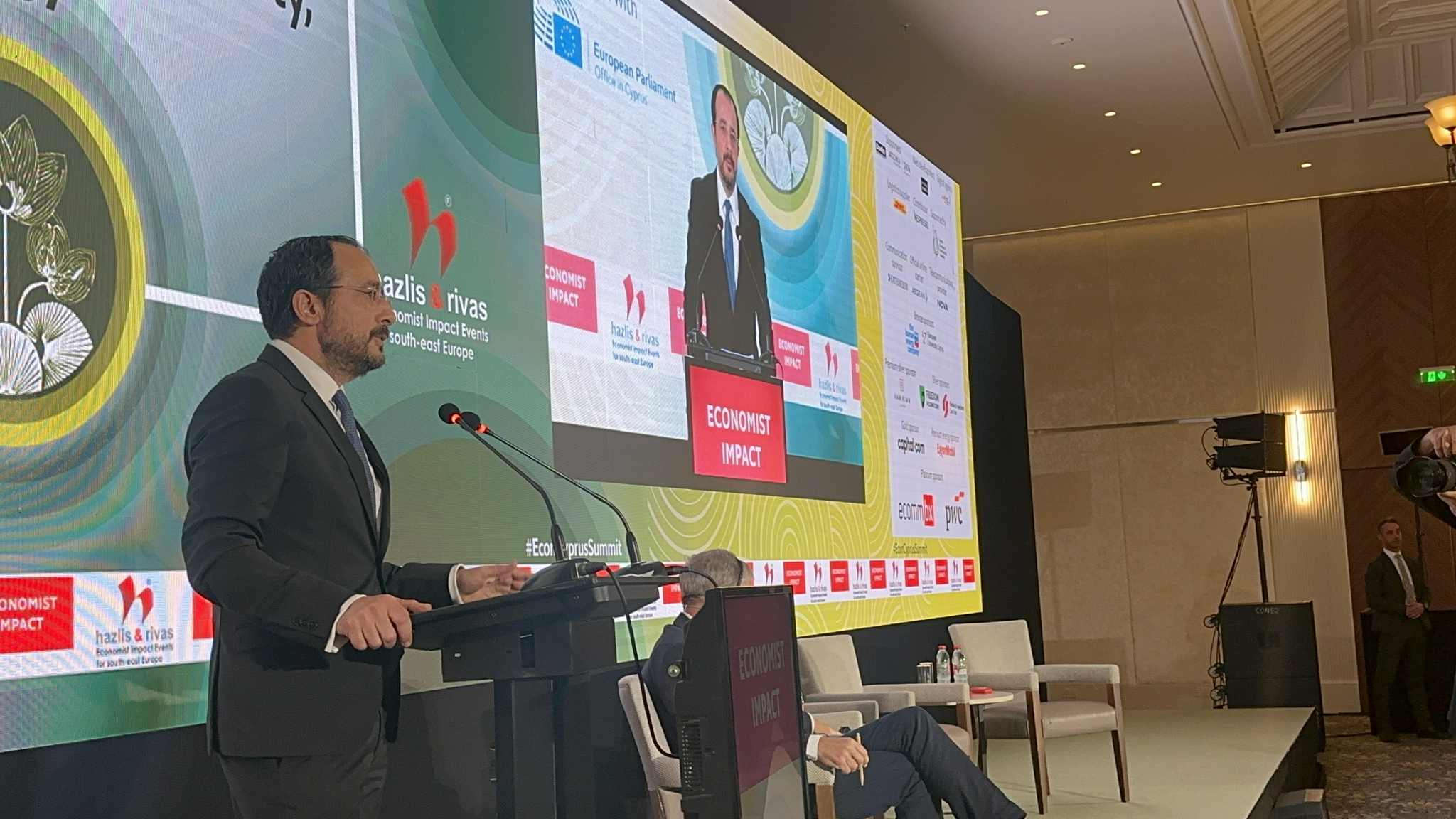President Nikos Christodoulides on Tuesday said the government is working to create the conditions for the creation of a “regional security and cooperation organisation” for the wider Middle East.
Addressing The Economist’s Annual Cyprus Summit, he said that “the goal may sound ambitious”, but that he and the government are “working towards the maturation of the necessary political conditions” for the establishment of an organisation in this vein.
Such an organisation, he said, would resemble “an Osce or a Nato”, and will “highlight the benefits through cooperation of all of us through the promotion of regional cooperation”.
The Osce – the Organisation for security and cooperation in Europe – is an intergovernmental organisation which focuses on issues including arms control, border management, countering terrorism, and the promotion of human rights, freedom of the press, and free and fair elections.
It has no legal personality, but does have observer status at the United Nations, and has 57 member states in Europe, Asia, and North America, including Cyprus, which joined in 1973.
Nato, meanwhile, is a purely military alliance, with its 32 member states agreeing to mutual defence in response to an attack by any outside party. Cyprus is not a Nato member, but all three of the island’s guarantor powers, Greece, Turkey, and the United Kingdom, are.
On the matter of Cyprus’ place in the world, Christodoulides said that he is “proud” that “our country is recognised and highlighted for what it truly deserves”.
“It is recognised as a safe harbour in a turbulent and geostrategic neighbourhood, a hub of connectivity and cooperation on three continents, a state with a clear western orientation which is at the same time an honourable, reliable, and predictable partner,” he said.
He then added that Cyprus constitutes a “stable and consistent factor in the region”, which is “part of the solutions to the challenges we face”.
“Small states like Cyprus must be daring and take action. Cyprus is walking the path of responsibility, of looking outward with clear goals and aspirations without any hesitation, and dares to take initiatives, to transform responsibility into a creative force of stability and cooperation,” he said.
He then spoke of both Cyprus’ Amalthea maritime humanitarian aid corridor to Gaza and the ‘Estia’ plan, wherein people were evacuated from conflict zones via Cyprus, among other ways in which he said the Cypriot government has demonstrated its ability to play a positive role in international developments.
In addition, he referred to the “six initiatives” he submitted to world leaders at a summit on the future held in the Egyptian city of Sharm El-Sheikh last month, regarding how he believes Cyprus can play a role.
“We dared and presented a specific six-point plan aimed at assisting the implementation of [United States President Donald] Trump’s plan for Gaza and peace in the Middle East,” he said, with his six points having been based on Trump’s own 20-point plan for Gaza’s future.
On the matter of relations with the US, he said the government is “working to strengthen our cooperation” with the country, and said that through strengthened ties with the US, “Cyprus is upgrading its position at the regional level”.
“In the context of this relationship, the United States recognises Cyprus for what it is – a reliable, predictable, responsible partner in the wider region,” he said, before adding that relations with the US have reached “levels which have never existed before”.
To this end, he pointed to plans for greater US involvement at Paphos’ Andreas Papandreou airbase, and planned upgrades to the base.
He then moved on to the matter of Cyprus’ forthcoming holding of the Council of the European Union’s rotating presidency.
During the island’s six-month term, he said, “we will work to strengthen two key objectives: the strengthening of the EU’s strategic autonomy and by extension its international footprint, and the strengthening of the EU’s relations with the region”.
“A strong EU also means a strong Republic of Cyprus, and we will work to bring the EU and the countries of the Middle East closer together strategically,” he said, before adding that “the security of the region is inextricably linked to the security of the EU”.
“Quite rightly, the EU is focused on Ukraine, but if it wants to become strategically autonomous, it must also focus on issues in the south, recognising the importance of the Mediterranean, the Middle East, and the Gulf as a bridge of common interests and perspectives.”






Click here to change your cookie preferences